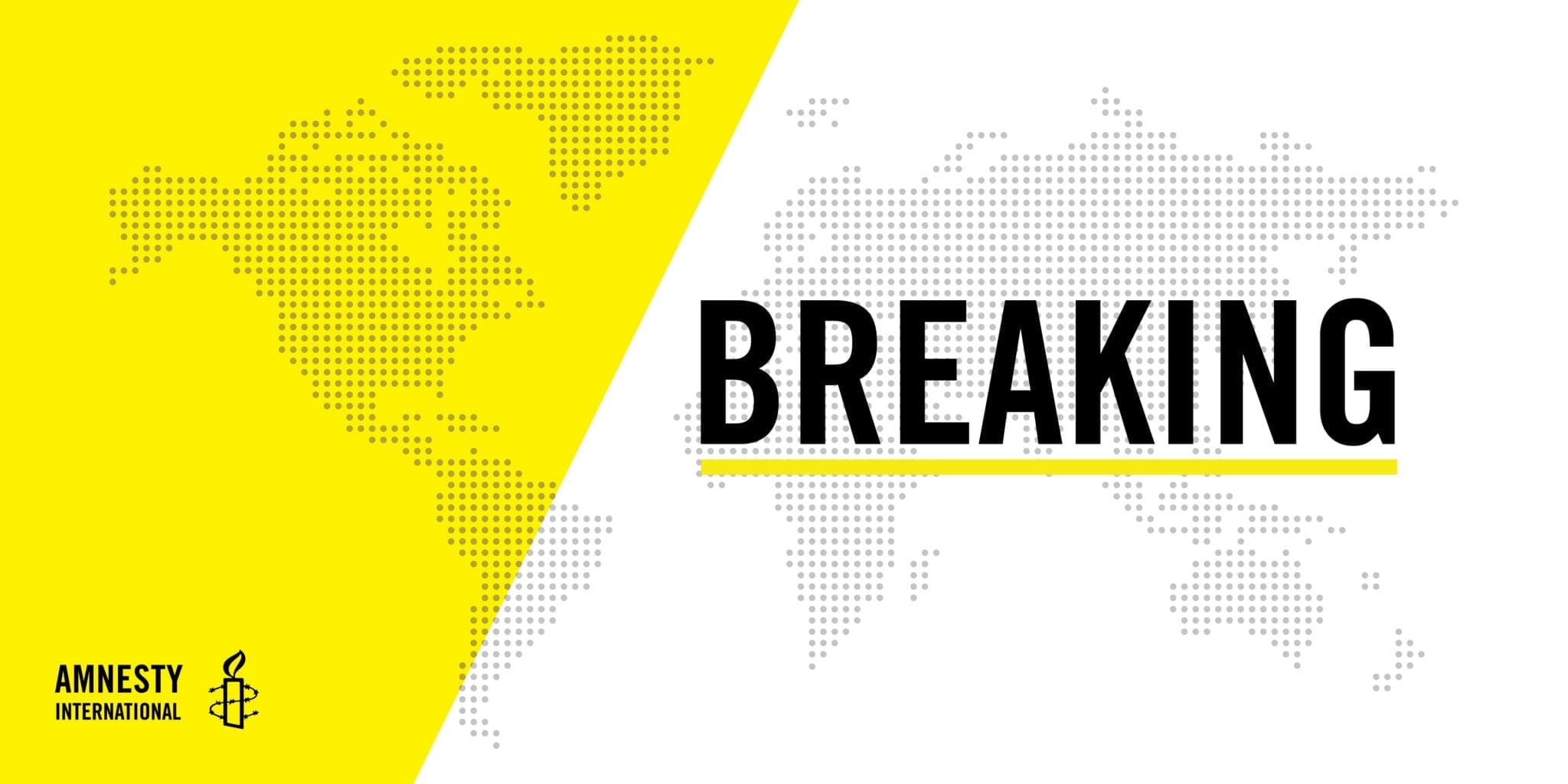Amnesty International calls on all sides to the conflict in Azerbaijan’s breakaway region of Nagorno-Karabakh to fully respect international humanitarian law and protect civilians from the effects of hostilities. On September 27, heavy fighting erupted between Azerbaijan, on the one hand, and, Armenia and Armenian-supported Nagorno-Karabakh forces, on the other, over the disputed Nagorno-Karabakh region.
Azerbaijan announced a “counteroffensive” military operation along the entire frontline in Nagorno-Karabakh which it claimed was in response to shelling by Armenian forces, while Armenia and de facto authorities in Nagorno-Karabakh declared martial law and military mobilization.
Dozens of persons are reported dead on both sides with the death toll rising as clashes continue. While it is reported that most of the casualties have been military, all sides have also reported civilians killed and injured. According to the Armenian Defense Ministry, civilian towns and villages, including the regional capital Stepanakert/Khankendi, were bombarded by artillery in the early morning on September 27. Social media users from Armenia have also circulated photos and videos purportedly showing the shelling of Stepanakert/Khankendi and surrounding areas. Nagorno-Karabakh’s de facto authorities reported that two civilians, a woman and a child, had been killed by Azerbaijani forces’ shelling in Martuni region of Nagorno-Karabakh, while two other civilians were reportedly wounded and schools have been targeted.
On September 29, an Armenian Defense Ministry spokesperson disseminated a video on Facebook allegedly showing a civilian bus in the town of Vardenis in Armenia, hit by fire from an Azerbaijani Unmanned Aerial Vehicle (UAV)5 and killing one civilian as a result.
The Ministry of Defense of Azerbaijan has reported that several civilians have been wounded and killed and civilian infrastructure damaged as a result of intense shelling by Armenian forces in several villages along the frontline, including shelling of the Azerbaijani town of Terter, south of Nagorno-Karabakh. This allegedly resulted in the destruction of several civilian houses on September 28 and the shelling of the Dashkesan region of Azerbaijan on September 29. Ten civilians have been reported dead and 30 wounded after three days of hostilities. Amnesty International has not yet been able to independently verify the reports of civilian casualties or to ascertain the circumstances in which they occurred.
The Azerbaijani government has also reportedly limited internet access throughout the country. According to the Azerbaijani Ministry of Communications the restrictions serve the purpose of preventing provocations. Azerbaijani human rights activists told Amnesty International that the authorities have blocked most social media and only limited VPN access is currently available.
Azerbaijani security services also arrested and questioned activist and former prisoner of conscience Giyas Ibrahimov in his flat after he published Facebook posts criticizing the hostilities. He was released the same day without any charges after being interrogated at the State Security Service building. Amnesty International calls on the parties to the conflict to fully respect international humanitarian law, particularly the prohibition of direct attacks on civilians and civilian objects, and of indiscriminate attacks. Military forces also must take all feasible precautions to spare civilians and civilian objects. This means that they must not use explosive weapons with wide area effects, such as artillery, in the vicinity of concentration of civilians.
Reports of violations of international humanitarian law must be thoroughly investigated and perpetrators held accountable. Armenia and Azerbaijan also continue to be bound by their obligations under international human rights law and must not use the conflict as a pretext for arbitrary restrictions on rights. Reports that authorities in Azerbaijan have cut access to the internet across the country are deeply worrying. This would be a disproportionate measure and violate the right to freedom of expression.
Even more disturbing is the arbitrary detention of Giyas Ibrahimov in retaliation for his peaceful, anti-war views violating his right to free expression. Amnesty International also urges the international community to monitor the situation and exert every effort to ensure both sides to the conflict observe international humanitarian law and give civilian protection absolute priority.
BACKGROUND
Azerbaijan and Armenia remain locked in a dispute over the majority ethnic Armenian-populated region of Nagorno-Karabakh, which declared unilateral independence from Azerbaijan in 1991 and remains internationally unrecognized to this day. The conflict in the region started in 1988 and lasted into the 1990s, leaving tens of thousands dead and hundreds of thousands, mostly ethnic Azerbaijani, displaced. The local de facto authorities in Nagorno-Karabakh, supported by Armenia, have maintained control over the territory of Nagorno-Karabakh district and seven surrounding Azerbaijani districts since a fragile ceasefire came into effect in 1994.
There have been numerous incidents of hostilities and skirmishes both in Nagorno-Karabakh and recently along the Armenia-Azerbaijan border. In April 2016, fighting in Nagorno Karabakh region that lasted four days resulted in hundreds of casualties on both sides among civilians and the military. The latest escalation of hostilities at the Armenia Azerbaijan border on July 14, 2020 resulted in at least 16 deaths.

